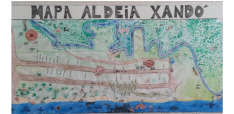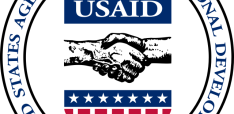'The Donors’ Dilemma: Emergence, Convergence and the Future of Aid' - A Change in Mindset is Needed if Aid is to Remain Relevant
This Column by Linah K. Mohohlo is part of Global Policy’s e-book, ‘The Donors’ Dilemma: Emergence, Convergence and the Future of Aid’, edited by Andy Sumner. Contributions from academics and practitioners will be serialised on Global Policy until the e-book’s release in the first quarter of 2014. Find out more here or join the debate on Twitter #GPfutureofaid.
The effective use of resources for purposes of providing development aid is undermined by a range of obstacles that have been brought into sharp relief by economic constraints currently facing donor countries. This includes mindsets among both donors and recipients that perpetuate mistrust and misunderstanding. For aid to play an effective role the old paradigms need to be decisively broken, with the responsibility shared by all parties.
It would be wrong to ignore the important advances in the provision of aid that have been made in recent years. These include greater donor flexibility that has allowed more effective deployment of resources, including through partnerships with other donors and NGOs. Recipients have also become more adept at meeting donor requirements, thus facilitating aid flows. Nonetheless, the aid relationship between donors and recipients continues to be problematic, constrained by outdated, incompatible and corrosive viewpoints.
For traditional donors (i.e. the democracies of the developed world), there continues to be a presumption, magnified in the court of public opinion, that overseas aid is a form of charity.The corollary of this is the view that recipients should play the role of humble supplicants; and if the required humility and gratitude is not sufficiently forthcoming, resentment at wasting resources “abroad” increases accordingly. Charity not only begins at home but should also stay at home! From this perspective, It is also natural to insist that aid is “tied” (i.e. as far as possible, assistance is through goods and services produced by the donor country) and there is little resistance to aid allocation being driven by domestic political considerations.
For their part, recipients (and their supporters) continue to take the diametrically opposite view that aid is an entitlement, to right the wrongs of global capitalism and, more specifically, compensate for the legacies of colonialism. Both these views are increasingly unfit for purpose, with responsibility for rebooting the relationship lying on both sides. If this is not forthcoming, the views on the ineffectiveness of aid will seem increasingly compelling.
A realistic vision for the future of official development assistance (ODA) needs to take full account of the changing global environment in which such assistance is provided. Notably, the extent of economic and social transformation across a swathe of developing nations has inevitably changed the priorities of the aid agenda. Little more than a decade ago, Africa was famously characterised as the “hopeless continent”, thus fitting easily into the “aid is charity” paradigm. But today, Africa is “rising”; it is the “next emerging continent”. At the same time and as part of the same process, the range of countries that can fulfil the role of donors has also expanded
There is, of course, a charitable dimension to aid; one that cannot be wished away. Natural disasters, such as the recent devastating typhoon in the Philippines, require an unconditional, humanitarian response. The need to provide continued support on a long-term basis to countries that have yet to break free from the lowest levels of development is also self-evident, although highly problematic in practice. A good example is support for national health budgets where there continues to be countries that are unable to mobilise sufficient resources domestically to meet even the most basic requirements.
But, beyond this, it is perhaps more productive to regard aid as a form of good neighbourliness, albeit on a global scale. When we help our neighbours, we surely do not think of it as charity! But we still recognise being good neighbours is beneficial to all parties in terms of, for example, social cohesion and security.
The new environment, no longer conveniently characterised along the lines of “rich north, poor south”, inevitably makes decisions regarding the optimal deployment of aid resources more complex. As others in this series have already pointed out, most poor people do not live in the world’s poorest countries but, rather, in the marginalised regions of wealthier nations. With the “bottom billion” no longer neatly allocated by country, the whole basis for bilateral aid programmes, including the use of per capita incomes for eligibility purposes, is quickly undermined.
Another challenge, again highlighted in previous articles, is the use of aid to fund global and/or public goods; for example, in the fields of health and environmental protection. The case for using aid to support such interventions is very robust but, beyond a further downgrading of the importance of bilateral aid programmes, the roadmap is far less clear.
There is also a need to redirect the focus away from looking so closely at ODA at the expense of other avenues through which social and economic progress in developing economies can be supported. In particular perhaps, the near obsession with commitments to ODA in relation to GDP has proved more a source of frustration for all sides than an effective means for holding donor countries to their promises. Even if such commitments were met, the quality of the assistance would not be guaranteed. Moreover, the amounts involved in ODA pale into insignificance compared to other relevant financial flows, including trade, remittances and, increasingly, domestically-generated fiscal resources.
In other words, a more broadly defined concept of aid is required, thus weakening even further the association with charity. In this regard, the communiqué from the G8 meeting in 2013 was promising, with only limited references to traditional ODA within much broader commitments to assist developing economies, including through trade facilitation, management of extractive industries, land allocation, and curbing tax avoidance. The challenge now is to maintain momentum in this new direction.
It is also crucially important for recipients of aid to make THE necessary adjustments to the new environment. Most notably perhaps, there is a need for more empathy towards governments in donor countries, recognising that they face very difficult choices regarding how much, and for what purpose, aid can be allocated. This is especially important in the context of the recent economic recession experienced by most of the traditional donor countries, with the ensuing uphill struggle to persuade electorates to accept government spending cuts. Moreover, the case for aid will continue to be weakened by each instance of corruption or wasteful expenditure in recipient countries that comes to light. The recent revelations of maladministration in Malawi demonstrate this all too clearly.
Developing countries should be rightly proud of their achievements and new-found confidence; and should continue to demand to be treated as partners. In this regard, the failure to make progress in rebalancing the relative voice of member countries of the IMF and World Bank is not only a disgrace, but continues to undermine the effectiveness and even the legitimacy of those institutions.
But these same countries must also recognise that this very success does raise very legitimate and serious questions as to why they continue to require assistance in the form of aid. When, for all its defects, more and more countries have self-evidently benefitted from global capitalism, the case for further redress becomes harder to make. Aid recipients should, therefore, also play their part as good neighbours. At the very least, this means they should be happy to demonstrate that; first, they are doing their utmost to generate domestic resources; second, these resources are being used effectively; and, third, they have the capacity to absorb additional resources provided through aid.
Achieving such a meeting of minds is, of course, more easily said than done. The recent termination of bilateral aid from the UK to South Africa was certainly not an example of good neighbourliness in action, from either side. But there are also some reasons for optimism. Not least, as emerging economies maintain their momentum in terms of development there will increasingly be a convergence of interest regarding the agenda for mutual prosperity. Moreover, embracing a notion of aid that moves beyond resource transfers should help break the association of aid with charity and the common perception that it is a zero-, or even negative-, sum game.
Linah Mohohlo is Governor of the Bank of Botswana. She has served on various international bodies including the Blair Commission for Africa, the Africa Progress Panel and, most recently as a member of the Lancet Commission for Investing in Health.


